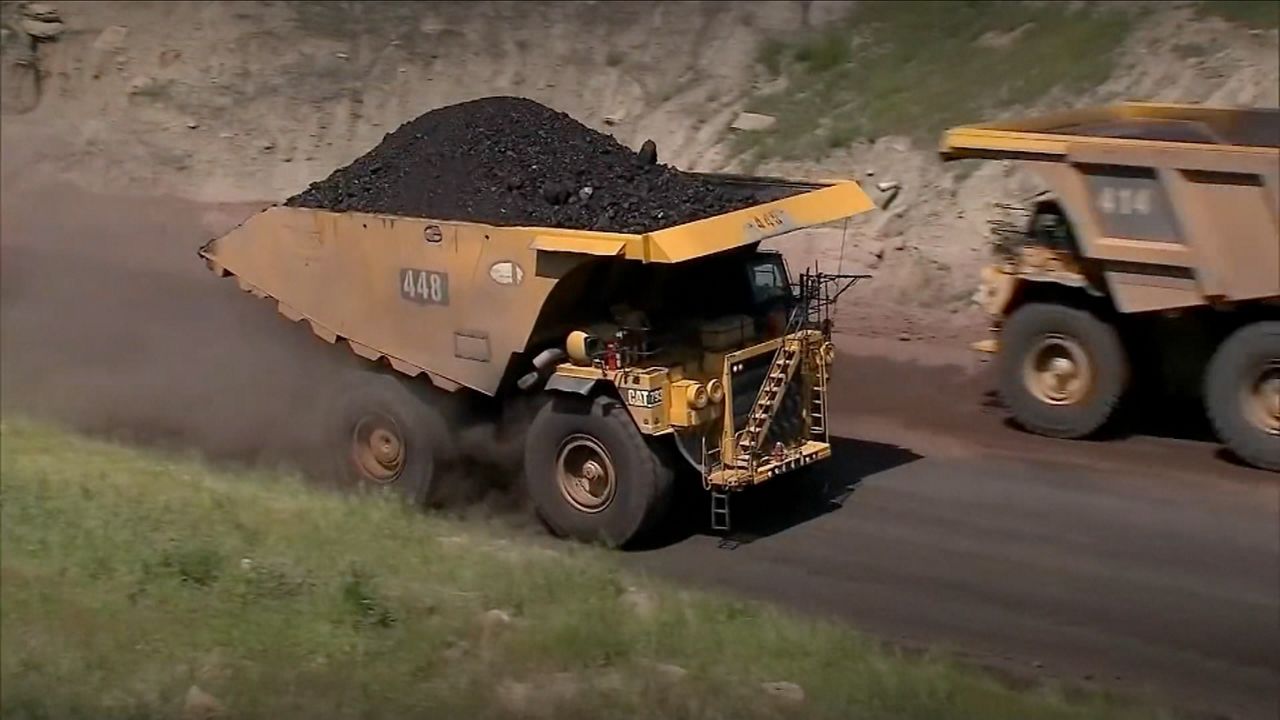FRANKFORT, Ky. - Kentucky lawmakers will pursue a few coal-related pieces of legislation, including some fueled by recent mine closures.
Senate Bill 27 would better enforce Kentucky's performance bond system.
Kentucky requires coal companies to cover wages for miners if they close unexpectedly through a performance bond.
Construction and mineral companies in business for fewer than five years have to pay the performance bond, which equals four weeks of employee pay.
The bill's sponsor, state Sen. Johnny Ray Turner, D-Prestonsburg, said he pre-filed the bill after Blackjewel LLC closed a mine in July and failed to pay its workers.
"I think it's ironic that we hear that coal keeps the lights on... some say that these unpaid miners are struggling to pay their electricity bills," Turner said.
State Sen. Phillip Wheeler, R-Pikeville, spoke out in favor of the proposal Tuesday.
"I think it's important that this body stand with them and stand for all workers who have put in a hard day's work," Wheeler said.
After Blackjewel closed a mine in eastern Kentucky, former Gov. Matt Bevin sent out notices to dozens of coal companies for failing to pay the bond. Some paid it but others didn't. The Lexington Herald-Leader reports American Resources Corporation, the parent company of Perry County Coal mine owner Quest Energy, did not pay that bond.
Senate President Robert Stivers said there are a couple of other pressing coal issues for legislators to decide this year: Coal mine reclamation costs and more money for Kentucky's black lung fund.
Companies have been shutting down without paying bonds to cover the costs of repurposing their former mines, so Stivers wants legislation to protect reclamation bonds in bankruptcy court.
He also wants to see something done about the black lung fund because with more and more companies closing and fewer people paying into the fund, the remaining coal mines have to pay more just to maintain it.
"That will do nothing but impair and potentially impale any company that is currently working to pay for those legacy or unfunded liabilities for black lung," Stivers said.
Coal production peaked in 1990, according to records from the University of Kentucky. That year, Kentucky produced 179.3 million tons of coal.
Production decreased by nearly 78 percent between then and 2018, the last full year of records the Kentucky Energy and Environment Cabinet has available. Eastern Kentucky has been hit the hardest with an 87 percent decline in coal production over the same time frame.
In 2018, Kentucky produced more than 39.7 million tons of coal and employed 6,434 people. The number of jobs had fallen to 5,792 in the third quarter of 2019, the first quarter in recent state history where Kentucky coal mines produced less than nine million tons of coal.
The last time Kentucky produced more than 100 million tons of coal was 2011, when the state produced 108.3 million tons of coal and employed 18,110 people.



